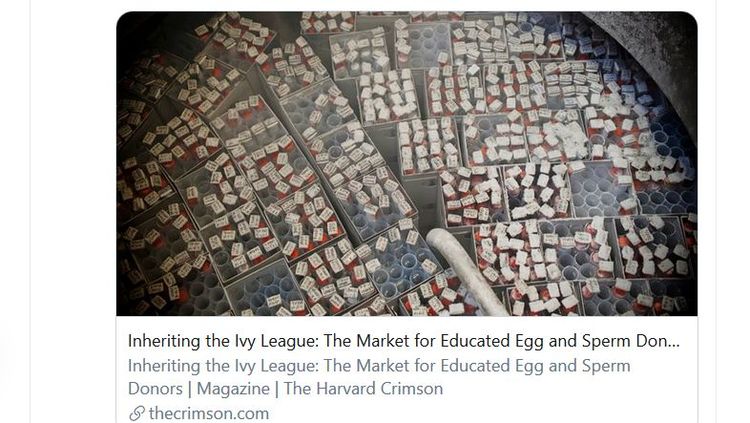


By Steve Sailer
08/09/2020
Egg and sperm banks like to open offices near famous colleges in order to conveniently harvest the gametes of students most in-demand by their customers. This may sound like the Pseudoscience of eugenics, but, well, you aren’t supposed to think about that.
From the Harvard Crimson, a long, informative article that details how much Harvard students can make as egg and sperm donors.
Inheriting the Ivy League: The Market for Educated Egg and Sperm Donors
BY SONIA F. EPSTEIN AND POLINA N. WHITEHOUSE, CRIMSON STAFF WRITERS
APRIL 30, 2020… The premium some intending parents place on elite education has great import in the U.S. fertility industry, which to a great extent is governed solely by the demands of the free market — a stark contrast to the situations in other countries, like Canada, where it is illegal to compensate egg and sperm donors beyond reimbursing any expenses they incur. On their websites, American sperm and egg banks tout as badges of honor the names of their donors’ prestigious colleges and universities — including, in nearly all instances, Harvard’s.
Intending parents, meanwhile, are willing to pay. While it’s illegal to sell human tissue in the U.S., compensation for gamete donation is legally taxable income. Five-digit compensation sums for egg donors with specific traits, like extensive or brand-name educational backgrounds, are fairly established practice, with some compensation values edging up and above $100,000. Sperm donors, who often donate continuously over several months, are usually compensated by-donation and can earn $1,000 or more per month.